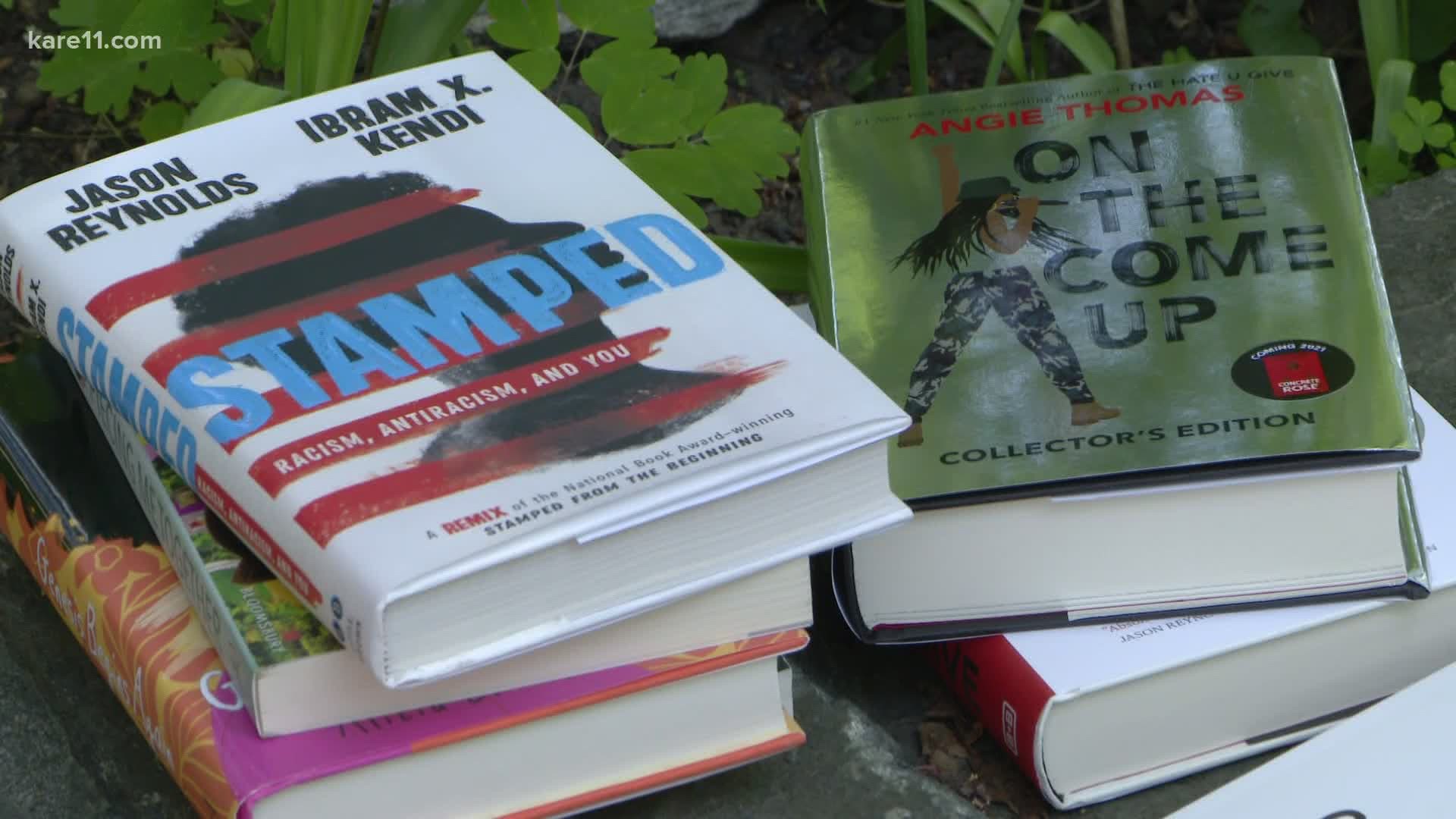ST PAUL, Minn. — Book titles that teach about anti-racism haven’t always been top sellers at Red Balloon in St. Paul.
But since the death of George Floyd, store owner Holly Weinkauef said she can’t keep some popular anti-racism books in stock.
“This is the first time we’ve seen this incredible interest, support and concern,” she said. “We sold out of Ibram Kendi’s 'How to be Antiracists' and the publisher is also out of the title but expected to have more in the middle of June.”
Floyd's death has ignited protests around the world and sparked another conversation about racism. Former Minneapolis Police Officer Derek Chauvin’s charges were elevated to 2nd degree murder and three others charged with aiding and abetting.
Yohuru R. Williams is Dean of the College of Arts and Sciences at the University of St. Thomas.
He says reading is the start. But make sure you put what you read into action. To see a recommended reading list, click here.
"The first thing is to read and study. Understand the roots of this problem. How deep it goes and how pervasive it is,” he said. “Here we can learn a lot from the civil rights movement. There is a difference between symbolic acts of solidarity with communities of color. Say his name or say her name which we saw in response. Structural change requires people to take actions, which really are going to require them to be uncomfortable to make sacrifices to confront white privilege and racial inequality that means moving beyond simple conversations about race to real concrete action. What does that mean? Looking at food deserts in the Twin Cities. Look at healthy disparities and see why does COVID blacks are disproportionately."
Williams also says understanding the underlying roots of those problems is key to solving them.
“The second thing is to take a look at one’s self and not to fall into the trap of white fragility and that is the idea that if this is unsettling to me, I can’t go any further with that journey,” he said.
“Part of this is being uncomfortable and recognizing the work that we all have to do collectively, but in particular the white community has to do, in order to recognize how deep these disparities go and divide our community.”
And he says think twice before you send another text or email to black people asking, "have you had a moment to breathe."
“The African- American community needs the space to grieve this moment. A good ally recognizes that one can reach out and express concern without trying to feel the need to ask in that moment for that person to take them on this journey,” he said.
“Think about ways that can demonstrate beyond reaching out and thrusting compassion. I feel your pain is not enough. We have to look at a way we can end the pain for everyone.”

